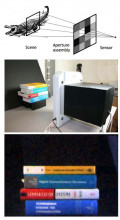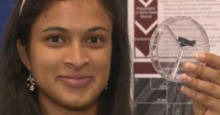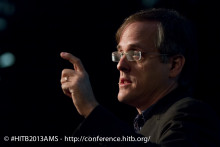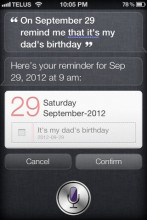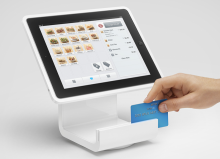Bell Labs invents lensless camera
The traditional method of imaging, which is at least 150 years old, relies on a lens to create an image and a device for recording photons such as an array of pixels, a light-sensitive film or even a retina.
But a dramatic revolution that is currently taking the world of imaging by storm means that this could soon change.
This revolution is based on a technique called compressive sensing, which is based on the idea that many common measurements have huge redundancy. That means it’s possible to acquire the same data with just a fraction of carefully chosen measurements.














































